Sponge for washing dishes
It ranked first among the accumulators and distributors of pathogenic bacteria.
The sponge should be changed every week, remembering to disinfect it with laundry soap and boiling water after use, and it is better to buy a product with a large porous structure - it dries faster. The longer the sponge remains wet, the more microbes accumulate on it.
Some users claim that the sponge can be disinfected in the microwave, but this is not the case: researchers have proven that microwaves only kill a fraction of the bacteria. The most dangerous and strongest remain unharmed.
Wooden spoons and scoops
Eco-friendly and cute, besides inexpensive - the scoops, actively used in cooking, quickly absorb fat, deform and no longer wash out. Untreated wood is not a durable material and is prone to microcracking.
Do not use your scapula for too long to prevent harmful germs from entering your food.
Grater
Experts recommend changing the graters every 4 years: the fact is that over time, the metal becomes thinner and rusty. Food microparticles get clogged inside, rot and are not washed out.
The blades become dull and the grater loses its effectiveness. Have noticed damage and rust on the kitchen assistant - do not regret it, throw it away.
How to care: do not use boiling water and abrasives for cleaning, clean immediately and wipe dry, wipe the darkened surface with lemon juice.
Cutting board
Over time, products are scratched, clogged with food particles, fibers of washing napkins and become hazardous to health. The higher the softness of the board and the more intensive the use, the more often it needs to be changed.
But there are no clear terms for replacement: Be guided by your own feelings - as long as the board is not scratched, darkened, and odorless, you should not throw it away.
Hardwood planks (oak, acacia, beech) will last longer than birch or pine. Bamboo boards are also durable, but plastic should be treated with caution: many boards wear out quickly and begin to release harmful substances.
Cleaning rags
The replacement frequency depends on the material used:
- Latex: "rubberized" when wet and hard when dry. Serves maximum 2 months.
- Viscose: almost disposable, quickly deteriorate, so can not be stored for more than a week.
- Microfiber: can be washed and reused by drying thoroughly. Serves for several months.
The table cloths should dry well between uses. We advise you to keep them hanging and throw them away if an odor develops, which is not removed even after disinfection.
Non-stick cookware
Pans and pans with this surface should be replaced at least once every two to three years.And if there are scratches on the bottom, it is better to get rid of the product as soon as possible: food on the damaged coating burns faster, and particles of the non-stick coating get into the food.
To make the dishes last longer, do not heat it above a temperature of 260 degrees, do not scratch with metal devices and buy quality products from reputable manufacturers.
Towels
Throw away washed and discolored kitchen towels right away and replace them with fresh and clean ones. If you regularly use the product while cooking, and then wipe your poorly washed hands with it and do not dry it, Escherichia coli will quickly settle on the fabric.
Towels should be washed as they become dirty - from once a day to once a week.
Keep 5-7 towels in stock to prevent premature wear of your kitchen textiles and prolong their life.
These simple guidelines will help you keep your kitchen clean and your health safe.

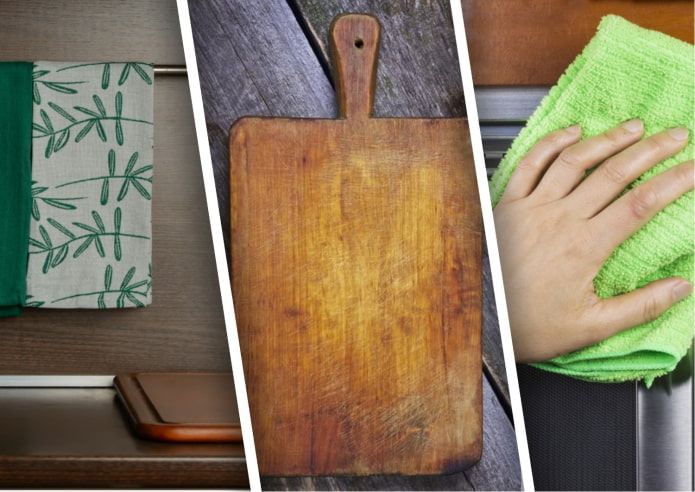
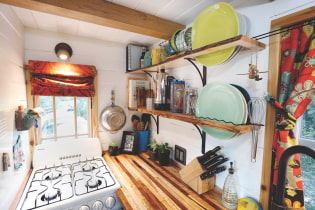 10 practical tips for arranging a small kitchen in the country
10 practical tips for arranging a small kitchen in the country
 12 simple ideas for a small garden that will make it visually spacious
12 simple ideas for a small garden that will make it visually spacious
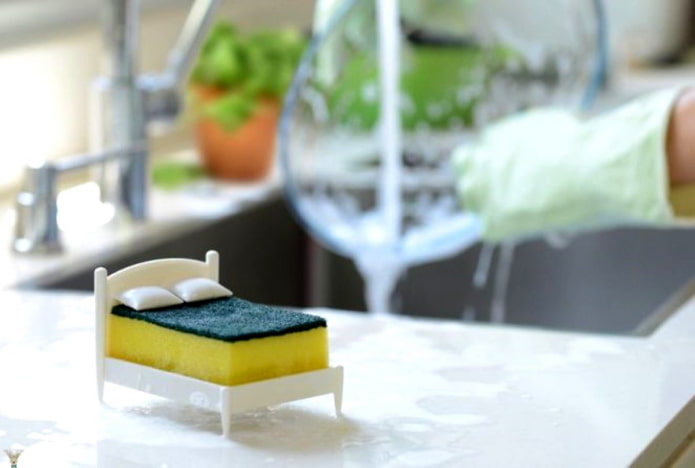
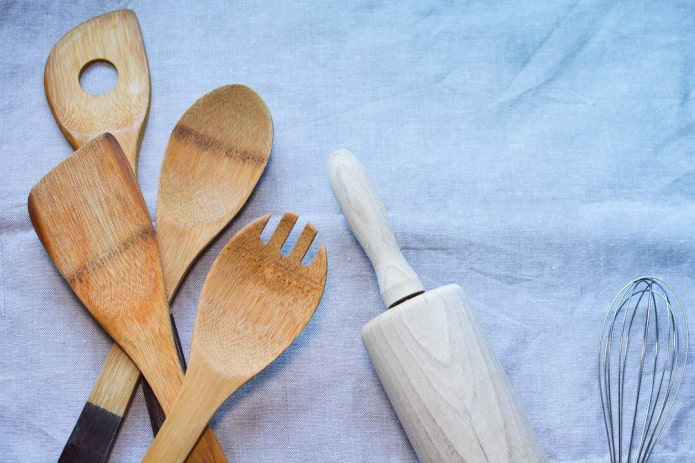
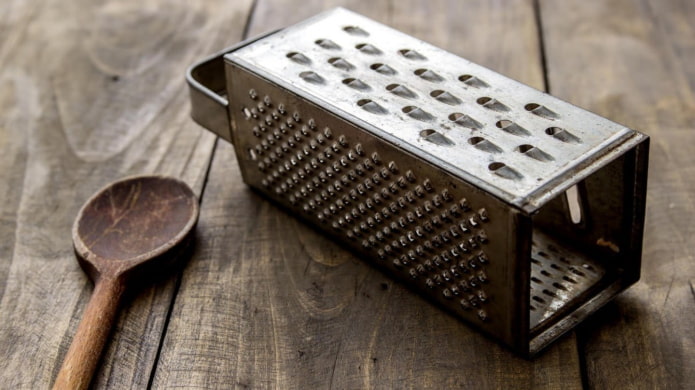
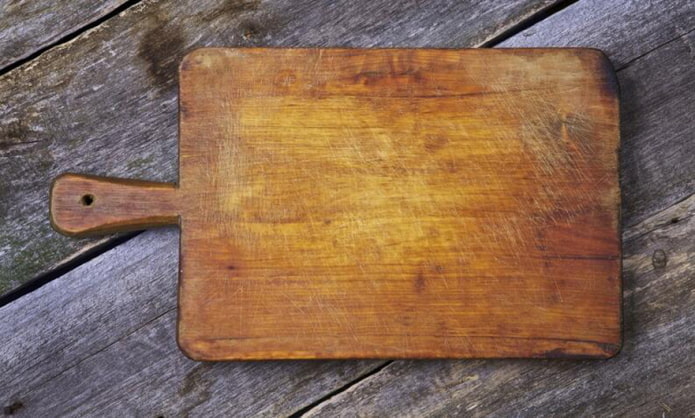
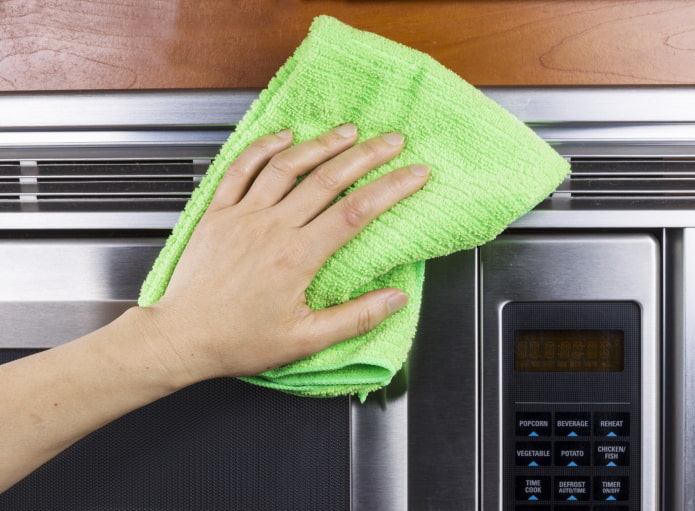
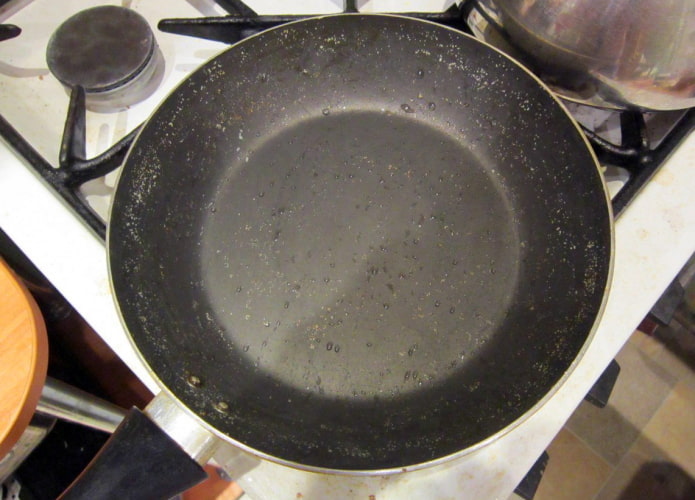
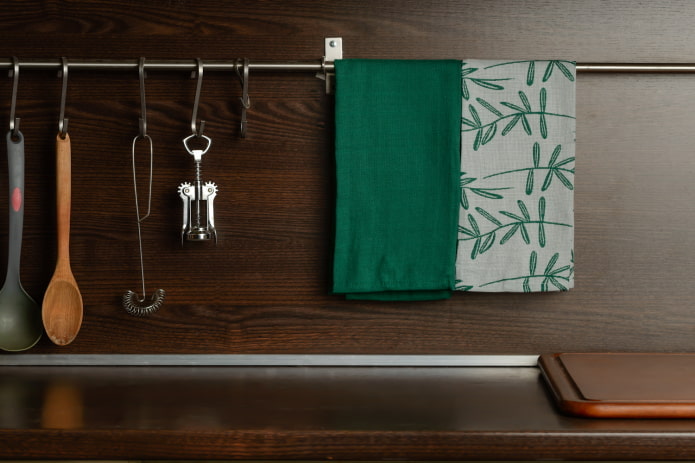
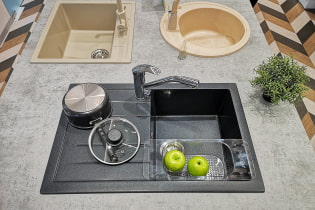 How to choose the color of your kitchen sink?
How to choose the color of your kitchen sink? White kitchen set: features of choice, combination, 70 photos in the interior
White kitchen set: features of choice, combination, 70 photos in the interior Black set in the interior in the kitchen: design, choice of wallpaper, 90 photos
Black set in the interior in the kitchen: design, choice of wallpaper, 90 photos How to choose curtains for the kitchen and not regret it? - we understand all the nuances
How to choose curtains for the kitchen and not regret it? - we understand all the nuances Design of a white kitchen with a black countertop: 80 best ideas, photos in the interior
Design of a white kitchen with a black countertop: 80 best ideas, photos in the interior Kitchen design with green wallpaper: 55 modern photos in the interior
Kitchen design with green wallpaper: 55 modern photos in the interior